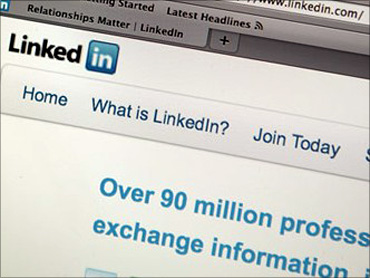Photographs: Courtesy Soft Skills International Divya Nair
Corporate etiquette trainer Shital Kakkar Mehra identifies the challenges facing young Indian professionals in the work environment, and tells us why they shouldn't feel guilty about investing in their attire and communication skills for success.
Have you ever been in one of these office situations?
You have a business presentation to make with international delegates on a Friday, which is casual day and you can't decide what to wear. Should you opt for business-casual (a pair of trousers and tee-shirt) or follow the formal code?
A senior colleague in your office often stops at your desk to chat with you. Despite you repeatedly telling him/her that you are busy, s/he doesn't seem to get the point. How do you politely make it understood that your work is being interrupted?
Your boss sends you a Facebook request. Both of you are aware that you are not close, and you are equally surprised that s/he wants to start this friendship on a social networking site. If you accept the request, s/he may access information that may be too personal to share. If you decline, s/he may be offended. What should you do?
While questions like what to wear and how to behave may seem unimportant to most of us, an expert will tell you that there are certain rules you must follow in business communications for success in your career.
And corporate etiquette trainer Shital Kakkar Mehra's new book Business Etiquette -- A Guide for the Indian Professional is the first step in that direction.
From tackling everyday office situations like how to dress appropriately for interviews, business meetings and office parties to tackling challenges like how to date a colleague without letting it interfere with your career, Mehra's book is customised to suit the needs of the Indian professional.
The book has already sold over 50,000 copies in the first month of its release and is on its way to being translated into three regional languages this year -- Hindi, Marathi and Telugu.
In this interview with rediff.com, Mehra tells us why young professionals struggle with workplace communication and offers solutions to some common situations faced by most of them.
...
'We never pay attention to our tone and volume while communicating in India'
What do you think are the challenges facing Indian professionals that you think need immediate attention?
Speaking too fast, too loud and not listening are common problems.
Most of them do not know how to draft a business letter or e-mail.
Also, we don't know how to indulge in small talk before a meeting or a party begins.
Besides that, we need to pay attention to our dining etiquette and improve the way we dress for certain occasions. In fact, the way we dress and eat is a crucial part of business communication, and thus translates into success.
Let me give you an example. Most young professionals do not know how to dress for the office on a Friday. In most organisations, the dress code for Fridays is business-casual. But how does one justify wearing a spaghetti-strapped top and shorts to the workplace? Wearing a pair of jeans is alright, but torn, faded jeans must be reserved for weekend outings with friends, not the office.
Why do you think they face these communication problems?
Our education system does not encourage public speaking or offer the opportunity to develop one's communication skills at the school or college level.
In a class of 40, the teacher identifies a set of four or five students who can communicate well and the same people are trained and given opportunities through debates, elocution and extempore competitions. Those who never get the opportunity to develop their skills end up struggling with basic communication as they enter the corporate world.
Another major problem with our communication is that Indians tend to speak too fast. The rest of the world can find it hard to comprehend what we're saying. And although we are reasonably good at speaking and understanding English, most professionals don't make it a habit to pay attention while listening. If you don't listen properly, you will definitely face problems in communication.
The fact also remains that India is a busy and loud country. We grow up in noisy surroundings -- traffic, the celebration of festivals etc. We have to raise our volume often so that we are heard speaking on the phone, or while we are travelling or multitasking. So we never pay attention to our tone and volume while communicating -- that's why we struggle during closed-door business meetings or while interacting with international professionals where the emphasis is on saying things in a soft and controlled tone.
In our country, people spend a fortune just to look their expensive best at weddings. We don't think twice about spending 30K on a wedding suit, which we may not wear more than once. But when it comes to spending the same for branded business formals, which you can wear for years, we bring on the numbers.
Illustration: Uttam Ghosh
'Most of us hesitate to approach strangers and start a conversation'
You mentioned that Indians are poor at smalltalk. Can you offer some tips on how to improve that?
Smalltalk is any informal conversation people tend to have, often before a meeting, presentation or social event.
Most of us hesitate to approach strangers and start a conversation with them. Smalltalk need not necessarily be about the event you are attending or a serious issue. It could be as simple as discussing the weather or the decor of the venue.
For example, in India, we indulge in smalltalk while offering refreshments to guests and inquiring about their travels or discussing their background etc. In the Middle East and Latin America, smalltalk may include sharing personal information about family. People from Europe and America keep the talk neutral by discussing weather, the economy or sports.
No matter what country you belong to, smalltalk essentially helps you break the ice and better understand the person you are talking to.
If you are attending an event where you are surrounded by strangers, smalltalk will help you gauge the mood and interests of others attending. Soon it will help you overcome any anxiety or nervousness you may have had about the people or the place.
Illustration: Uttam Ghosh
'Never discuss your personal life with your boss'
The boss is often the most difficult person to communicate with in an organisation. Can you list a few things one should never discuss with one's boss/senior?
Never discuss your personal life with your boss. Details like what you did over the weekend, how you spent your holiday are best avoided.
Stay away from gossip. When you don't have a choice, listen to what is said but do not share your opinion or add information. Be diplomatic.
Be humble and don't harp too much upon how other people value your work. Do not share things like how you refused a certain headhunter's handsome job offer to prove your loyalty. Your boss will only take it as a sign that you are not reliable and may quit at any time.
Illustration: Uttam Ghosh
'Use 'kindly', 'please' and 'thank you' in office communication'
What are the most common blunders that Indian professionals make at the higher management level that you think they must avoid?
Most young professionals complain that they receive e-mails from superiors with vague or incomplete messages inside. In one such instance I heard of, an employee received a mail from his senior with four question marks in the subject line. This is very common in most organisations. The senior sends you a blank mail with no subject or limited sentences. While some juniors consider this a sign that their senior is angry, others get confused and do not know how to reply.
The rules for e-mail communication are the same across all levels of management.
In all cases, do not assume that the recipient of your e-mail knows everything. Mention its purpose in the subject line and ensure that you have included action points and deadlines for important tasks. Always use words like 'kindly', 'please' and 'thank you' in office communication.
Illustration: Uttam Ghosh
'Focus on the word 'office', not 'party''
What are the most common blunders people make at office parties?
If you are a serious person, an office party is a good opportunity to show people your casual side and introduce yourself to colleagues from other departments who you are not familiar with.
Not showing up is a common blunder. If you are not comfortable about staying long, attend the party and ask for permission to leave early.
Then there are people who mistake the office party for a social celebration and end up overplaying the casual side. Focus on the word 'office', not 'party'. It may help beginners.
Hanging out with a click of colleagues is equally bad. Interact with new people from other departments. Remember some of their names; it will help you build your network inside the workplace.
Manage your alcohol.
Also, most people forget to thank the host before leaving an office party. If you cannot offer your thanks personally for some reason, remember to send a text message or an e-mail thanking him/her so it is known that you appreciate the effort.
Illustration: Dominic Xavier
'Choose LinkedIn over Facebook'
Photographs: Reuters
What should one do if s/he receives a Facebook request from the boss?
Don't accept the Facebook request. Send back a LinkedIn request instead. That's professional.
If you accept the Facebook request it means your senior will access your personal life -- friends, photographs and wall posts -- which you may not be comfortable sharing. On the other hand, if you decline the request, your boss may feel offended and it may send the wrong message.
By sending a LinkedIn invitation, you have politely made it known that you want the friendship with your boss to remain professional.
Do not forget to add a line like 'Dear Sir/Madam, I would like to stay in touch with you on LinkedIn. Kindly accept my invitation.'
'Never add office colleagues on Facebook or Twitter'
Kindly suggest some dos and don'ts to follow on a social networking site.
Never add office colleagues on Facebook or Twitter, especially if you are a social networking addict. You don't want your officemates to know how many drinks you had at a friend's party or how much money you spent shopping.
Facebook is clearly for ex-class mates, college friends and neighbours, in some cases.
Also, be careful about what you post and share on sites like Twitter, because we are magically connected through various networks and it could mean that your neighbour found out about your promotion before anyone at the office.
If you are sharing pictures on Facebook, ensure that you have adequate control over your privacy settings.
'Always send an e-mail to thank an interviewer'
What are the blunders people make during job interviews?
Most of them assume that the employer has already seen their CV and avoid carrying it. It is always advisable to carry two copies of your CV while appearing for an interview.
Similarly, you may have shared your CV with many employers at the same time. But that is no excuse for not doing adequate research on the company you are applying to. Even if you haven't while applying, keep yourself updated at the interview stage.
As you grow in your career, you may find yourself in a situation where a few minutes into the meeting, you realise that the job profile doesn't match your requirements. In such cases, be polite and honest to admit to the employer that you not interested.
Also, remember to send a thank you e-mail for considering you for the position and stating that you would like to keep in touch. Head hunters will remember your gesture and it will work to your favour if they have to recommend you at a later stage.
Illustration: Uttam Ghosh
'Don't ignore your pre-meeting homework'
Photographs: Rediff Archives
Can you elaborate upon some dos and don'ts while interacting with international professionals?
When in doubt, always choose business formal attire while meeting international clients.
Speak softly and clearly.
Do some pre-meeting homework -- details of the country they belong to, the company they represent and notable achievements, if any. Information like this will help you conduct your meetings better.
Indulge in smalltalk before a meeting or presentation begins. Ask them about their country and tell them about new developments in India that you think they may find interesting.
Be a good listener. If you do not follow something they say, apologise and request them to explain it you again.
Do not discuss topics related to race or religion.
'Think of yourself as a brand'
Any career advice for young professionals?
Be punctual. Always reach 10 minutes ahead of the scheduled time, so that you can prepare yourself for the meeting.
Research recent updates regarding your clients and company so that you have an edge in any conversation.
Think of yourself as a brand. The way you speak and conduct yourself will reflect upon the success of your career.
Don't feel guilty about making investments in your future -- your attire and communication skills are an extension of your success.
Illustration: Uttam Ghosh












Comment
article